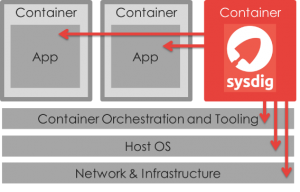Today, where there are almost as many approaches to digital transformation as there are enterprise software vendors, Docker refocuses its strategy on providing the best unified container management platform for DevOps. Docker’s key value proposition is to enable developers to build an application once and then deploy it to any Kubernetes-driven private or public cloud, where DevOps teams and IT operations can manage it throughout its lifecycle and move it to another location at any point in time. However, Docker also aims to absorb traditional enterprise applications, edge and IoT workloads, big data apps, blockchain, and serverless functions, both on Windows and on Linux.
3 Key Lessons from DockerCon 2018: Strategic Analysis of the Container Market Place
By Torsten Volk on Jun 26, 2018 5:21:30 AM
Machine Learning and Artificial Intelligence: The Promised Land for Lowering IT OPEX, Decreasing Operational Risk and Optimally Supporting Business Goals
By Torsten Volk on Sep 26, 2017 10:44:15 AM
What should machine and artificial intelligence (ML/AI) do for IT operations, DevOps and container management? The following table represents my quick outline of the key challenges and specific problem ML/AI needs to address. The table is based on the believe that ML/AI needs to look over the shoulder of IT ops, DevOps, and business management teams to learn from their decision making. In other words, every virtualization administrator fulfills infrastructure provisioning or upgrade requests a little bit differently. Please regard the below table as a preliminary outline and basis for discussion. At this point, and probably at no future point either, I won't claim to know the 'ultimate truth.'
Running Containers Doesn’t Have To Mean Running Blind
By Dan Twing on Oct 6, 2015 2:17:15 PM
The idea of containers has been around for a long time in various forms on various operating systems. It has been part of the Linux kernel since version 2.6.24 was released in 2008. However, containers did not become mainstream until a couple years ago when Docker was first released in March 2013. Docker introduced container management tools and a packaging format, which made container technologies accessible to developers without Linux kernel expertise. By doing so Docker led the way to making containers mainstream as well as one of the hottest trends in application development and deployment because it simplified the way applications are packaged. While this has big advantages, containers are still early in their lifecycle and lack operational maturity. The ease of use with which Docker images can be created leads to image sprawl, previously seen with VMs, and exacerbates the problem of managing security and compliance of these images. Container environments do not integrate well to existing developer tools, complicating team development due to a lack of staging and versioning for preproduction and production promotion. Also, containers do not integrate with existing monitoring tools, complicating management. However, new tools are being developed targeting Docker as an application delivery format and execution environment by an ever-growing Docker community. Many of the benefits are on the development side of the house, with the promise of DevOps benefits. Running in production can be a different story.



